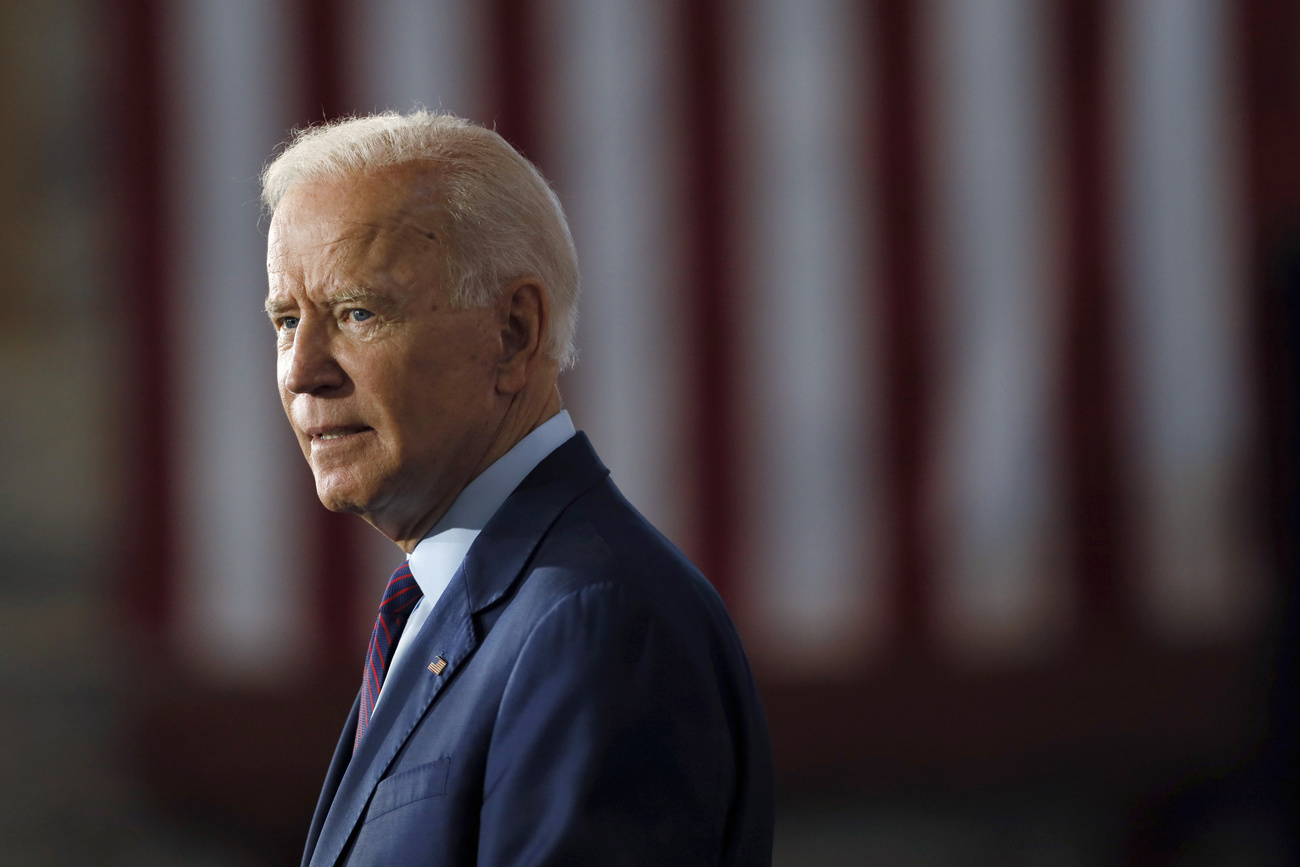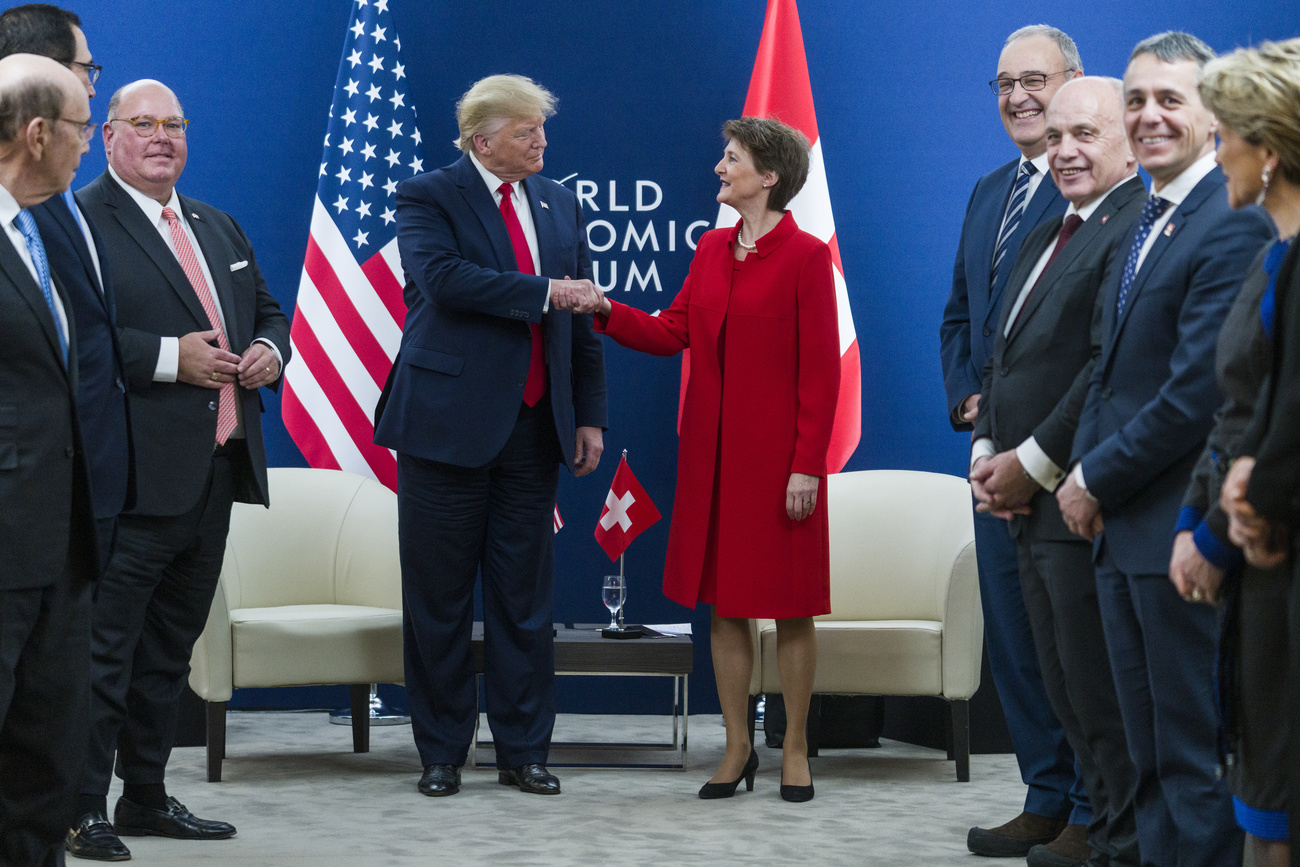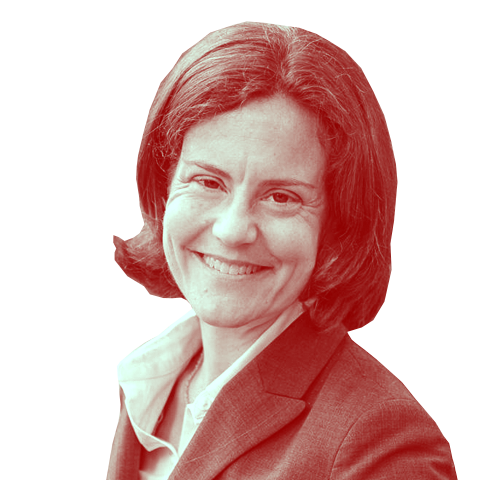Swiss and US central banks: same purpose, different paths

US President Joe Biden has nominated Jerome Powell for a second term as Chair of the governing body of the US Federal Reserve. The nomination of Powell, and of three other candidates to fill board seats, took months - which would be unthinkable in Switzerland.
The Fed’s monetary policy committee has been understaffed for over three years. Biden attracted criticismExternal link for his failure to rectify this.
Powell was picked by Biden in November. It took until January, a year after the US President’s inauguration, for Lisa Cook, Philip Jefferson and Sarah Bloom Raskin to be put forward to fill other holes in the Federal Reserve governing board.
A multi-year vacancy on the board of directors of the Swiss National Bank (SNB) is unthinkable – because it is organised in a completely different way.
What are the main differences between the Swiss and US central banks?
The SNB is led by a three-person board nominated by its supervisory body, the Bank Council. This body comprises representatives from business, science and politics. While in the US, parliament has a say in appointing governors, in Switzerland it is the Federal Council (government ministers) who confirm or reject proposed SNB board members. The SNB’s management structure is simpler.
At first glance, Swiss politics seems to have little influence on the SNB. In comparison, the governance structure of the US Federal Reserve is far more complicated and intertwined with the political process. The Federal Open Markets Committee (FOMC) determines the course of monetary policy. The FOMC comprises seven Federal Reserve governors and 12 heads of regional reserve banks, who sit at the table when the Fed discusses monetary policy.
However, only five of the 12 regional chairs can vote. The voting rights rotate annually. The New York Federal Reserve alone has a permanent vote because it is responsible for implementing monetary policy.
Elections of members to the Fed’s Board of Governors are heavily politicised. They are nominated by the US President and confirmed by the Senate, where candidates sometimes fail to find a majority.
Nonetheless, Swiss politicians can also influence the SNB because the Federal Council chooses which of the three central bank board members it wants as Chair. This gives the government some leverage on monetary policy.
In reality, the Chair has no greater say on setting monetary policy on the three-member panel. But if the two other board members work together against the Chair, it runs the risk of the Chair resigning. A natural aversion to taking this risk means that the Chair can significantly shape the monetary policy direction of the SNB over a long period of time. This makes the SNB predictable, but it also presents the theoretical risk of gridlock.
The US Federal Reserve is less exposed to this type of risk. The larger FOMC leads to a richer diversity of opinion. Even Fed Chairman Alan Greenspan, who went down in history as the ‘maestro’, occasionally had to bow to the majority FOMC opinion during his tenure from 1987 to 2006.
But such a large decision-making body also brings disadvantages. In Switzerland it is clear who is responsible for monetary policy: the SNB Chair (at present, Thomas Jordan). By contrast, FOMC members can hide behind the majority decision.
The tables are turned when it comes to government in the respective countries. In the United States, the President takes sole responsibility for government decisions. In Switzerland, the Federal Council operates with a wide range of opinions and shared responsibility. If the SNB was organised like the US Federal Reserve, Jordan would have to convince a diverse decision-making body about his views. Just as Swiss Federal Councillors (government ministers) must do today.
Author Fabio CanetgExternal link holds a PhD on monetary policy from the University of Bern and the Toulouse School of Economics. He is a lecturer at the University of Neuchâtel. As a freelance journalist he writes for SWI swissinfo.ch and The Republik. He also moderates the monetary policy podcast “Geldcast”.

In compliance with the JTI standards
More: SWI swissinfo.ch certified by the Journalism Trust Initiative















You can find an overview of ongoing debates with our journalists here . Please join us!
If you want to start a conversation about a topic raised in this article or want to report factual errors, email us at english@swissinfo.ch.